The feminist retreat in the woods of Russia, away from Putin’s power
Welcome to Femdacha, a retreat hidden away from Putin’s government, where feminist activists can relax and talk freely, writes Isabelle Khurshudyan
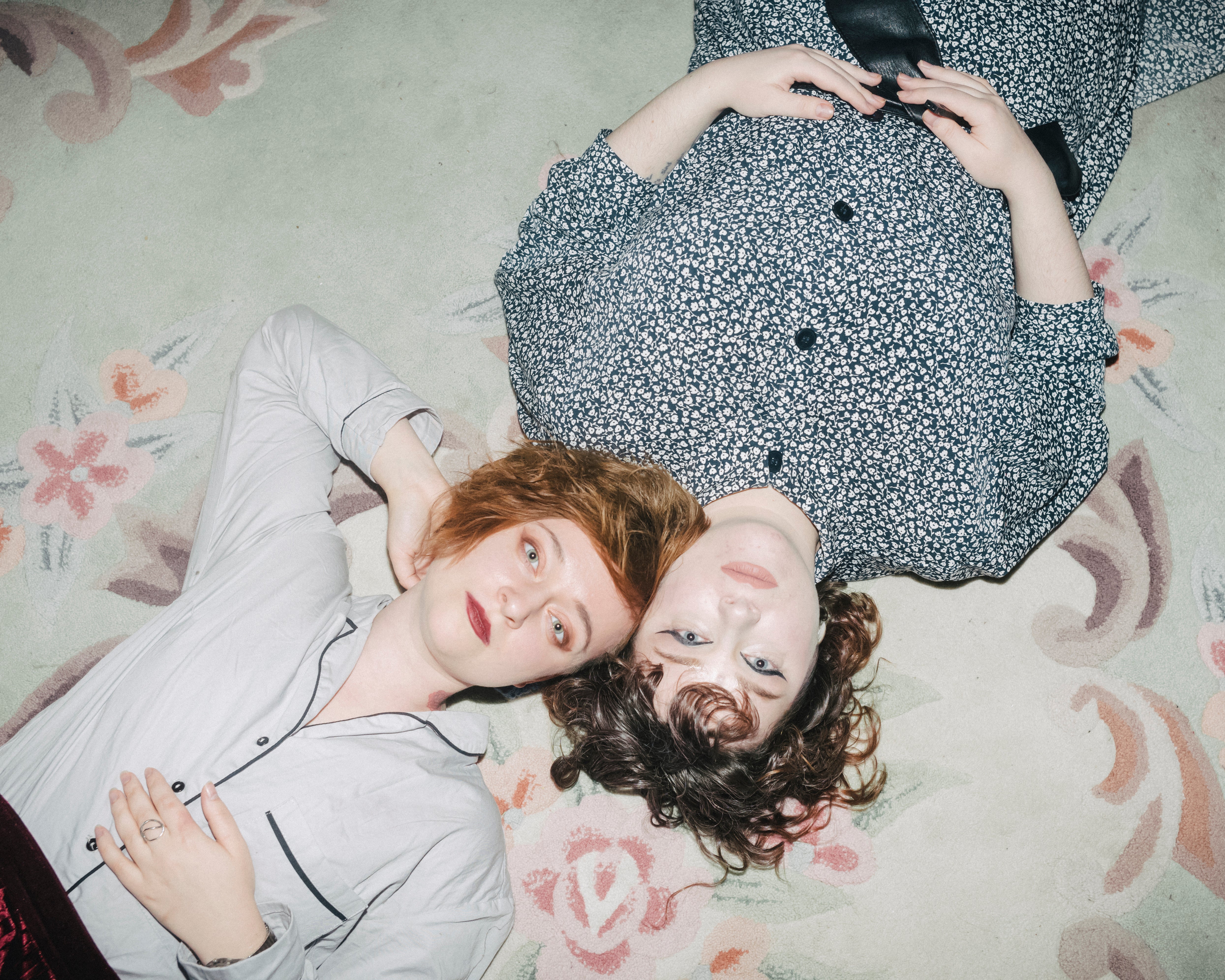
The well-tended brick house on Moscow’s outskirts may be among the most exclusive addresses for those exhausted from fighting President Vladimir Putin’s government.
First, you apply to be a guest – the list is open to women and other activists within the LGBTQ community.
Then, if accepted, you receive the location through the “secret chat” function on the Telegram messaging app. It’s not to be shared with anyone.
At the start of your stay, there will be an introductory seminar in the living room, where a rainbow flag hangs on one wall and slightly deflated pink and blue balloons are dangling from the lighting fixtures. The lone identifying marker is the retreat’s name, which appears on a pink neon sign by the fireplace: Femdacha.
Dachas are staples in Russian society: country homes varying in size and grandeur that serve as year-round family escapes for weekends. The founders of Femdacha adopted the concept to create a retreat for activists, specifically those who are pro-feminist and LGBTQ, who are battling increasingly harsh crackdowns by Putin’s government as it tries to crush and intimidate dissenters.
The repression has worsened for women, activists say, as their causes have garnered more support, and, consequently, more attention from the authorities.
The house can accommodate up to five guests at a time, for a stay no shorter than one week but no longer than one month. Discussing work is discouraged – except for on the first day. That’s when the new residents are asked to list their main fears and frustrations as activists.
“Other than Putin,” co-founder Daria Serenko clarifies with a chuckle, because that issue is both too obvious and too big to tackle from the Femdacha couches.
Guests have mentioned police heavy-handedness, such as sudden apartment-searches or arrests. Some have said they feel alone. Others have complained that activism isn’t recognised as hard work in Russia – and it’s still so stigmatised that it can lead to losing a paying day-job.
But the most common concern was the feeling that their efforts aren’t making a difference, as the Kremlin’s crackdown has grown more intense.
“It seems to me that from the moment a segment of activists start to be taken seriously, the repressive measures begin,” Serenko says. “That’s what you’re seeing now.”
Serenko and Sonia Sno, a fellow activist, were both so burned out that they just wanted somewhere quiet to sit in silence and recharge. Last year, day trips that took them three hours away from Moscow to do just that became more frequent. They needed a place to rest.
27-year-old Yulia Tsvetkova was charged with distributing online pornography after she posted artwork based on female anatomy
The idea for Femdacha was born. What if, they thought, instead of seeking retreat alone, they created a shared space for activists feeling the same emotional exhaustion? Thanks to some funding help from foundations and individual activists, Femdacha was founded last year, and has been fully booked since opening in November.
Each guest gets their own room, and the stay is free. A family that liked the idea for the project agreed to rent the house at a discount. So Serenko and Sno didn't change the interior much – the personal touches are in the funky couches, the two Baby Yoda figurines on the fireplace, and the projector screen in the living room.
“Many people have told us that just the fact that we’re here feels like support,” Serenko says. “They know there’s a place for them.”
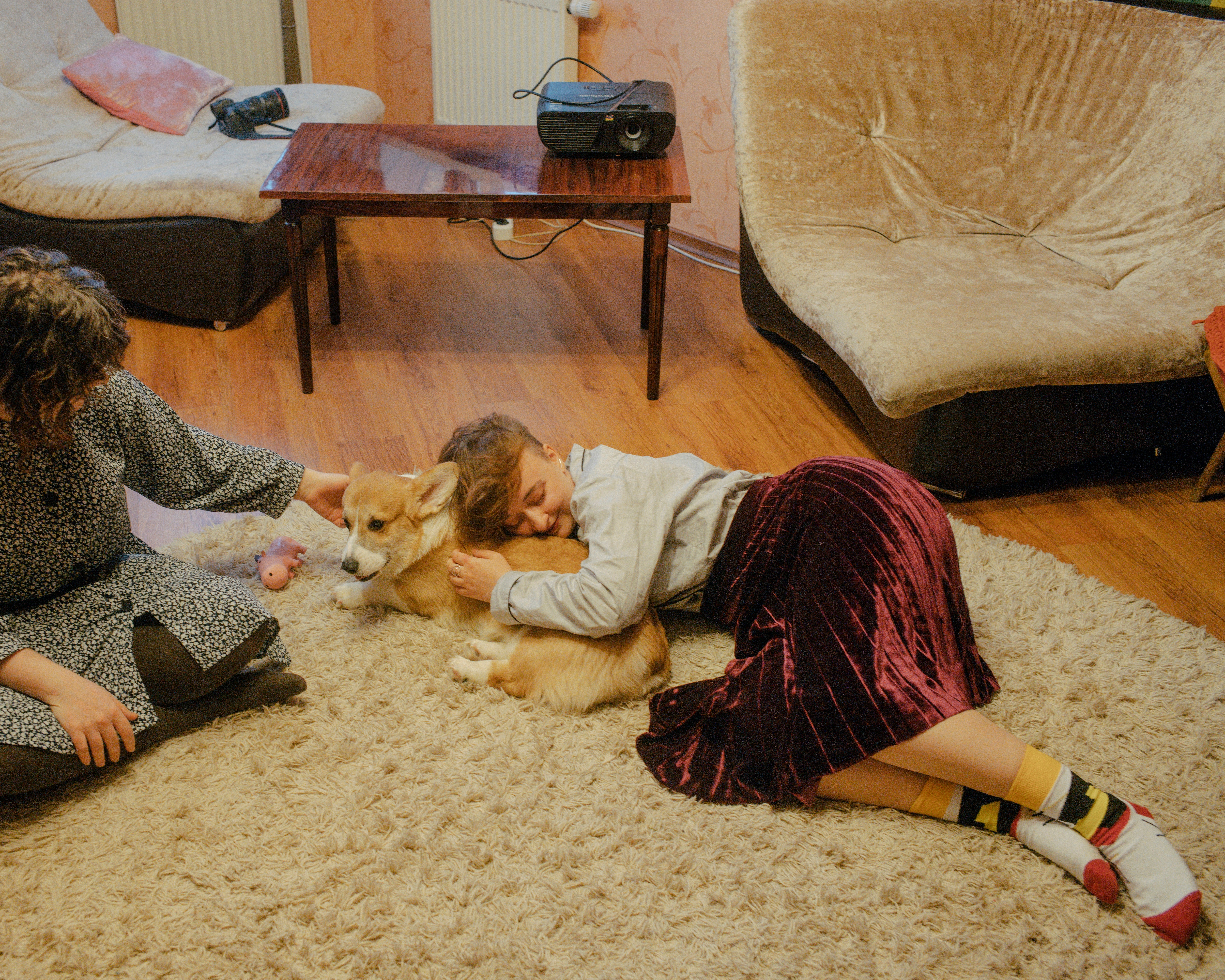
In recent years, defenders of Russian women’s rights have largely focused their efforts on strengthening the country’s domestic-violence legislation, as it’s still not considered a criminal offence. Sno says that all-women picket lines and similar demonstrations, for that cause and for others, used to take place without incident just two years ago.
“Now, you’ll get detained for any peaceful protest. We were detained,” she says, referring to herself and Serenko.
A chilling turning point for activists came in June, when 27-year-old Yulia Tsvetkova was charged with distributing online pornography after she posted artwork based on female anatomy on her social media page as part of a project on positive body image. The charges carry a prison sentence of up to six years.
Tsvetkova’s case garnered international condemnation. Amnesty International decried the “absurd charges”. She was also fined under Russia’s law banning “gay propaganda” from being shown to minors, after directing a children’s play that criticised gender stereotypes, and sharing drawings of families with same-sex parents on social media.
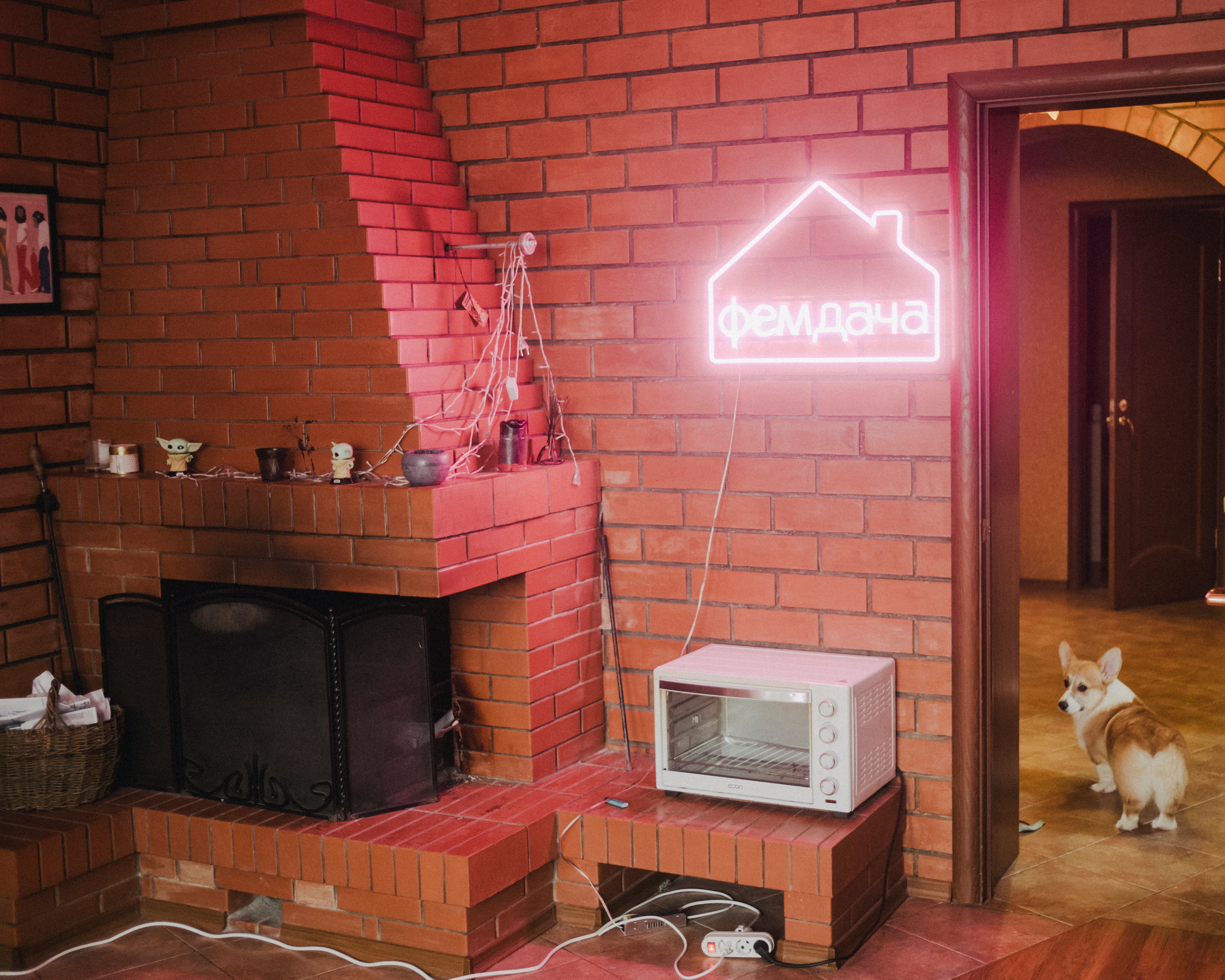
To show support for Tsvetkova, Daria Apakhonchich organized a “vulva ballet” performance outside of St. Petersburg’s famed Mariinsky Theatre in August. She now thinks that demonstration led to the government labelling her a “foreign agent” late last year. Previously, the tag applied only to organisations.
Apakhonchich is suing the Russian justice ministry over the decision. After police raided her apartment on 31 January, confiscating her laptop and frightening her two children, Apakhonchich decided the family needed a break, leaving St. Petersburg for what she refers to as a holiday.
“Of course, I want to return to my beloved St. Petersburg and have fun there and engage in feminist projects,” says Apakhonchich, who had been planning to publish a third book of feminist fairytales for children. “But I felt my kids need a break because they were definitely not ready for this. It shocked them.
“And I’ve asked myself what I did that was so wrong that I landed on this list as an enemy of the state. I only ever tried to do good.”
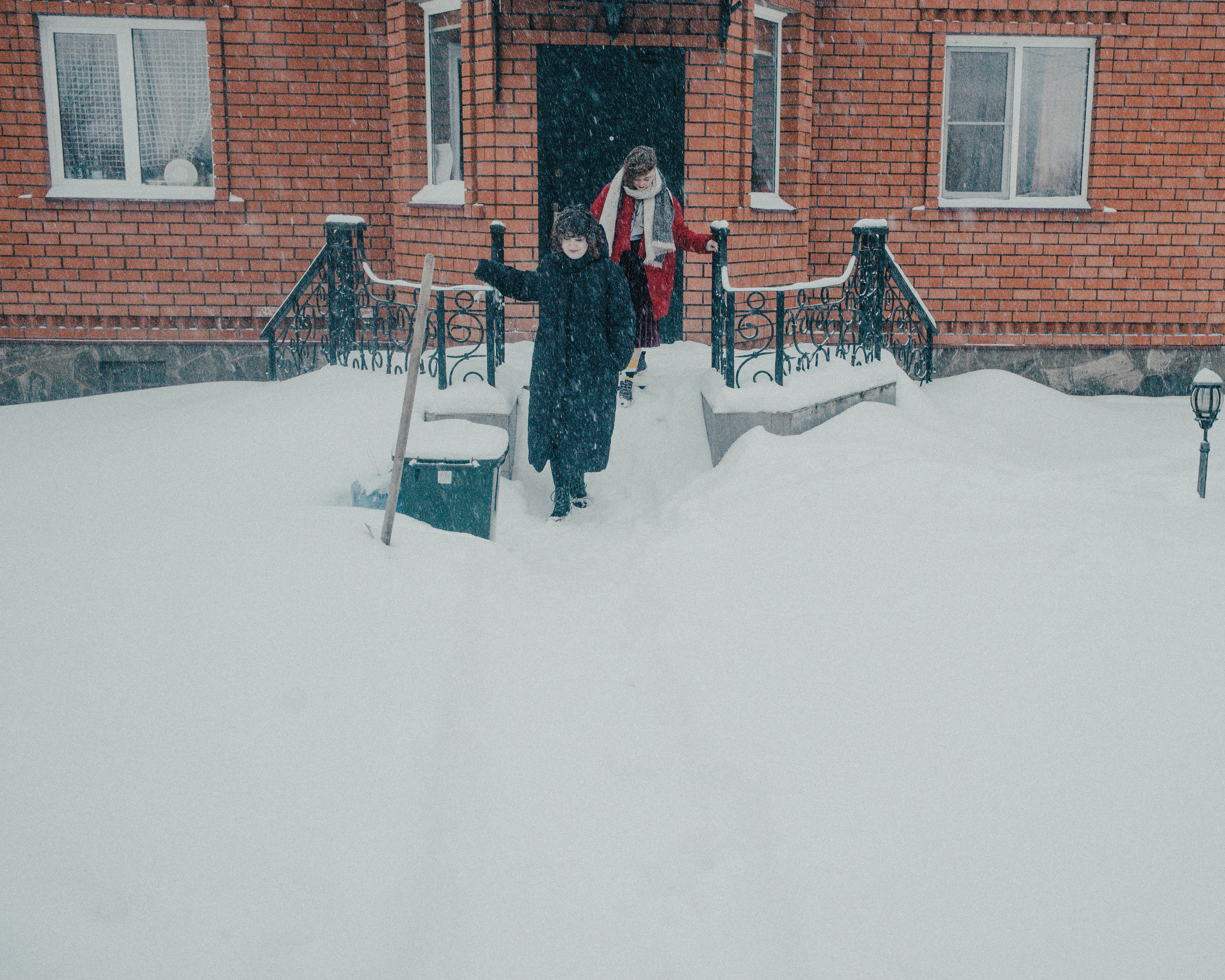
It’s unease over stories like Tsvetkova’s and Apakhonchich’s that often leads activists to Femdacha.
The house rules are taped to a brick wall on the first floor, warning guests not to reveal Femdacha’s address nor bring any visitors there, and to make sure that the location tag on their social media accounts is switched off.
The whereabouts are kept secret to keep the house a safe space.
Just last month, Serenko’s home address, alongside photos of her, was published on a Telegram app channel belonging to a group identifying as “anti-feminists”. Thousands of threats to her social media accounts followed.
“Every time I stepped outside, I was afraid to find some kind of dangerous man waiting by the door because I knew that there wouldn’t be any punishment for him over this,” Serenko says. “There’s this kind of pressure and this kind of threat to us, too.”
At Femdacha, reading the news or social media is discouraged. So is networking with other guests. Instead, downtime is urged.
On a Sunday afternoon in February, two women sitting in the kitchen are discussing what they should have for a midday snack and when the new guests will be arriving. A corgi – he’s also called “an activist” – belonging to one of the house’s temporary residents lounges in the living room, chewing on a toy.
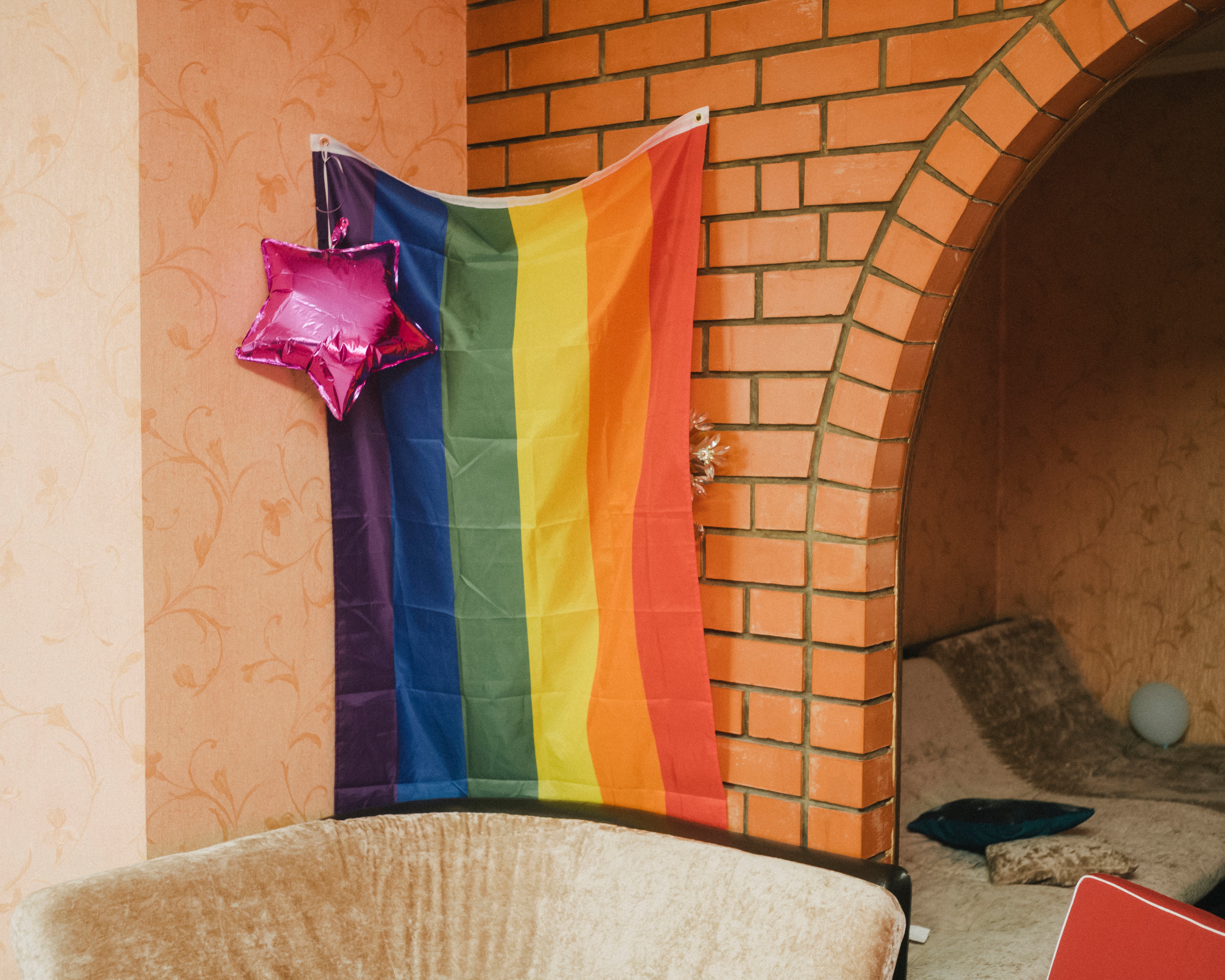
Femdacha’s schedule for the week is handwritten on a large easel in the living room. Lunch is prepared together at 1pm, tea is served at 4:30pm, and from 9pm guests can watch a film together, have a therapy session, or just “chill”. Group therapy, along with two individual sessions with a psychologist over video link, are provided free. Other planned activities include making apple jam together and painting.
Femdacha’s visitors aren’t required to strictly follow the agenda. It’s a guide. Just staying in bed all day is OK, too.
Serenko and Sno, who sleep on mattresses in an office upstairs, just ask that everyone at least have breakfast and dinner together as a way of checking in.
At every Femdacha introductory seminar, guests are asked to list their goals. That usually leads into a conversation about keeping their objectives realistic – and how everyone needs to keep up their energy for what’s likely to be a very long battle with the Kremlin.
“I just can’t stand this phrase of the opposition about a ’wonderful Russia of the future’, even though I consider myself a member of the opposition,” Serenko says. “But the problem is that people feel themselves responsible [for] every second [until] this wonderful Russia of the future arrives.
“People give themselves these huge, impossible goals and then feel like nothing is changing,” she adds. “Part of our goal at the seminar and at the retreat in general is to show them the short-term results and the small steps.”
© The Washington Post




Join our commenting forum
Join thought-provoking conversations, follow other Independent readers and see their replies
Comments